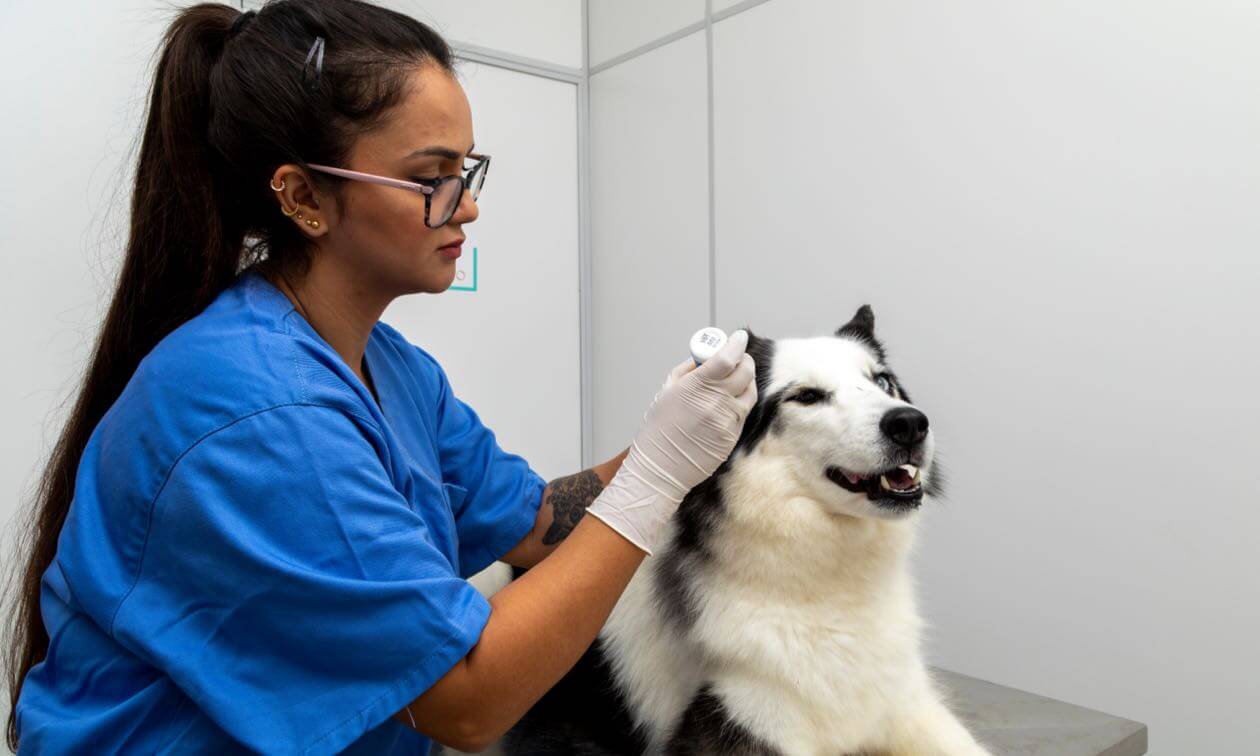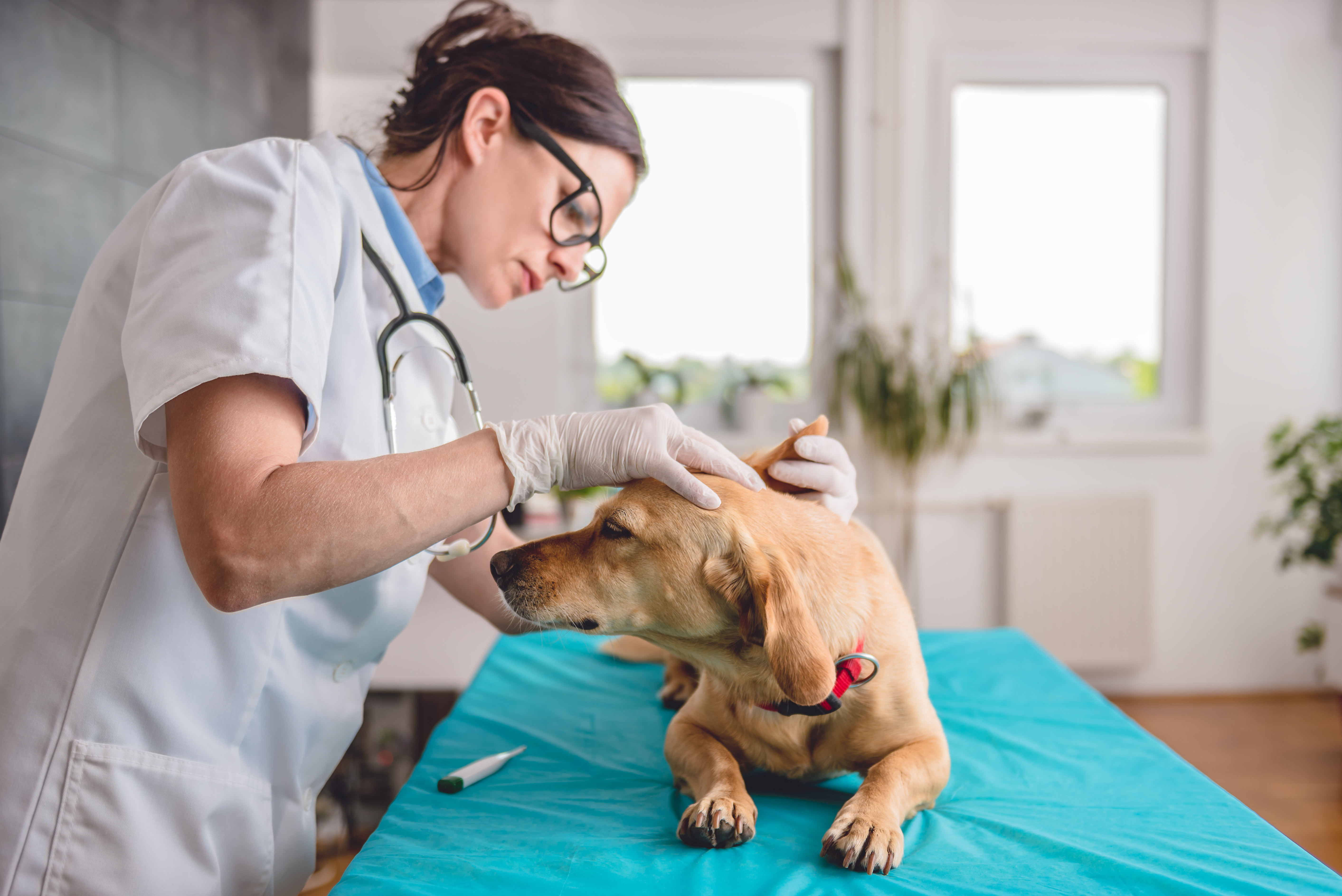The Function of Pet Vaccinations in Stopping Serious Health Issues for Your Pets
Vaccination Standards From Your Relied On Vet
Inoculation guidelines given by your relied on veterinarian play a crucial function in protecting your pet's health and wellness and well-being. Furthermore, dealing with usual false impressions surrounding injections can further boost pet proprietors' self-confidence in these precautionary measures.
:max_bytes(150000):strip_icc()/veterinarian-526081-final-d02935e28abf4e4a9b4dc25b5d0f2cc8.png)
Significance of Vaccinations
Inoculations play a pivotal function in protecting animals against a range of preventable illness. By promoting the immune system to recognize and battle certain microorganisms, vaccinations substantially lower the occurrence of transmittable conditions that can impact an animal's health and long life. Not just do vaccinations secure individual pets, yet they likewise add to herd resistance, consequently minimizing the overall prevalence of conditions in the family pet population.
Prompt inoculations help to minimize the spread of illness such as rabies, parvovirus, and distemper, which can have extreme effects for both family pets and humans. Vaccinations are often a demand for boarding centers, grooming solutions, and dog parks, making them crucial for those who want to socialize their family pets.

Core Injections for Pets
While the details inoculation demands of animals can vary based upon individual variables, core vaccinations are widely advised to protect against one of the most typical and major conditions (Emergency Vet). Core vaccinations are those deemed essential for all pet dogs, regardless of their way of living or geographical location, as they guard against possibly fatal and highly transmittable diseases
For pet dogs, the core vaccinations consist of those for canine distemper, parvovirus, adenovirus (hepatitis), and rabies. Adenovirus can result in liver condition, while rabies is a zoonotic disease that presents a threat to both human beings and pet dogs.
In cats, core vaccines include feline panleukopenia, feline calicivirus, feline herpesvirus (rhinotracheitis), and rabies. Feline panleukopenia is a highly contagious viral disease that impacts the body immune system and intestinal tracts. Calicivirus and herpesvirus are significant factors to top respiratory infections in felines, while rabies stays an essential problem for public wellness.
Talk to your vet to guarantee your family pets receive their core inoculations on routine.
Non-Core Vaccines Explained
Non-core vaccines are customized to resolve specific dangers related to an animal's environment, way of living, and exposure to certain illness. Unlike core vaccinations, which are universally recommended for all pet dogs, non-core vaccines are considered based upon private scenarios. These injections are especially crucial for pet dogs that might run into special microorganisms due to their geographical place, traveling routines, or tasks.
Examples of non-core injections include those for Bordetella bronchiseptica, which is connected to kennel coughing, and Lyme disease, brought on by ticks. Animals that frequently interact with various other animals, such as those in boarding centers, pet dog parks, or grooming settings, might take advantage of Bordetella inoculation. If you live in an area where Lyme condition is common, immunizing versus this disease can be a sensible choice for outdoor-loving canines.
Other non-core injections might include those for leptospirosis, canine flu, and feline leukemia, depending on the specific danger factors present. It is vital to have a thorough discussion with your vet about your animal's way of living and the potential requirement for these vaccinations, making sure a customized vaccination method that ideal protects your furry close friend.
Vaccination Schedule Introduction

As pets develop, it is necessary to abide by the advised booster vaccinations. Veterinarian Enterprise. For adult animals, core vaccines are usually offered every one to three years, depending upon the details vaccine and regional laws. Non-core vaccinations might be recommended based upon lifestyle click elements and regional illness frequency, necessitating a tailored method
Routine vet check-ups are important for upgrading inoculation schedules. Your veterinarian can give assistance on the most suitable immunizations for your pet, factoring in age, health and wellness status, and environmental dangers. By staying positive and educated, pet owners can guarantee their hairy friends obtain prompt and reliable vaccinations, thereby securing their health and wellness and wellness throughout their lives.
Typical Misconceptions Concerning Vaccinations
Misconceptions about pet dog vaccinations can cause complication and unwillingness among pet dog proprietors regarding the immunization procedure. One widespread myth is that injections are unnecessary for indoor family pets. While it holds true that indoor family pets deal with lower dangers, they are not click to find out more entirely immune to diseases, as microorganisms can be introduced through various means, consisting of human garments and other pets.
Another mistaken belief is that injections can cause the conditions they intend to avoid. In truth, most vaccinations include suspended or undermined virus, which can not trigger condition in healthy and balanced animals. Some animal owners also think that their animals ought to not be vaccinated if they are already healthy and balanced; nevertheless, inoculations are a positive measure that aids stop the onset of ailment.
Additionally, many pet proprietors fear that vaccines will certainly result in lasting health difficulties. While adverse effects can happen, they are typically moderate and short-lived. The benefits of vaccination-- protecting animals from potentially dangerous conditions-- far outweigh the threats. Recognizing these common myths is vital for responsible pet dog possession and guaranteeing the wellness and safety and security of your furry friends. look at here now Constantly consult your vet for accurate information customized to your animal's specific needs.
Final Thought
In summary, adherence to vaccination guidelines is essential for guaranteeing the wellness and durability of animals. Dispelling usual myths bordering vaccinations further reinforces the importance of notified decision-making in pet treatment.
Not only do vaccinations protect specific animals, however they likewise contribute to herd resistance, thus reducing the overall occurrence of diseases in the family pet population.
Misconceptions concerning animal inoculations can lead to confusion and unwillingness amongst family pet proprietors relating to the booster shot process. While it's real that indoor pets deal with reduced threats, they are not totally immune to conditions, as virus can be presented via various methods, including human clothing and other family pets.
Some pet dog proprietors also believe that their family pets need to not be vaccinated if they are currently healthy and balanced; however, vaccinations are an aggressive action that helps protect against the start of disease.
The benefits of inoculation-- safeguarding family pets from possibly dangerous illness-- much outweigh the dangers.